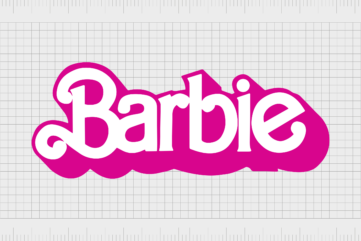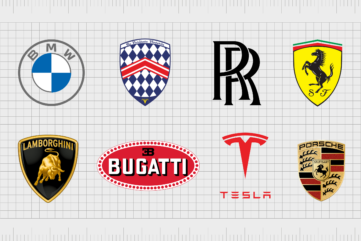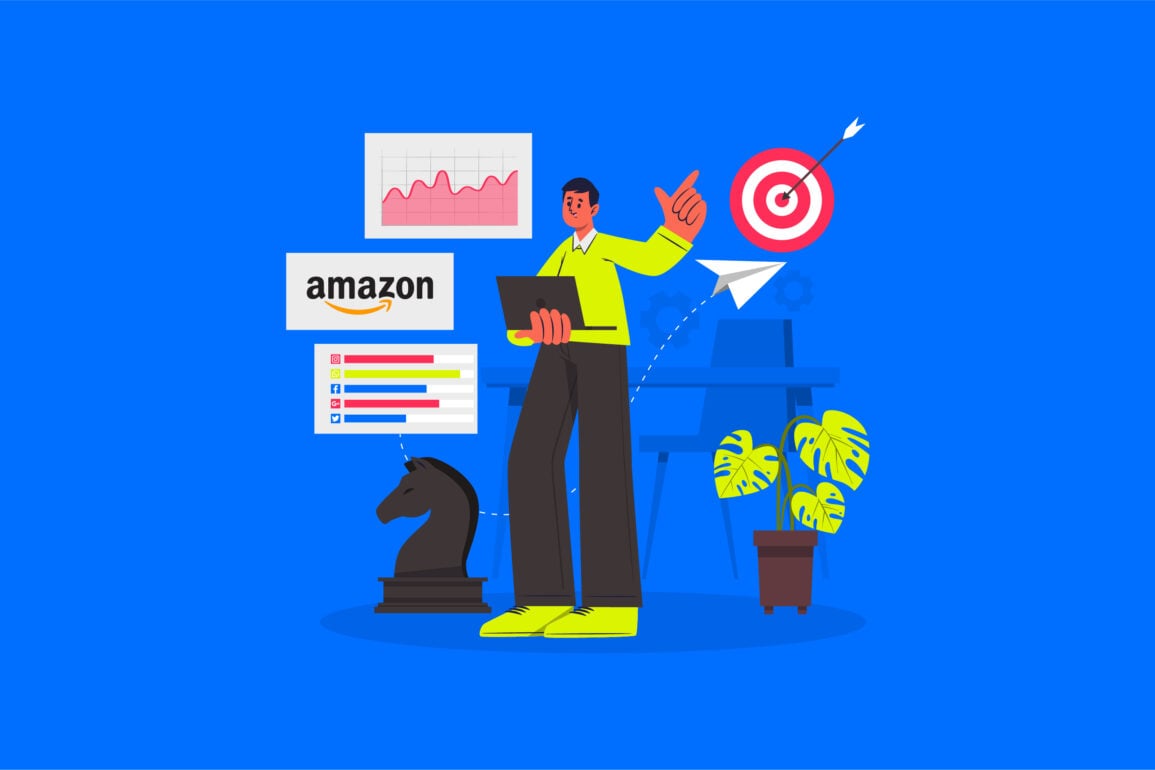Planning your b2b marketing strategy

If you don’t have the exposure of Apple or Amazon, how do you go about building your b2b brand? The answer could be a root and branch review of your b2b marketing strategy.
Think of a brand. Any brand. Now tell me what you thought of. Was it Coca-Cola? Or McDonalds? Nike maybe, or Vodafone? Whatever it was, I bet it was a consumer brand. Branding and consumer marketing go hand in hand. Even the little guys – Innocent Drinks springs to mind – have used clever branding to get known and get big. And eventually exchange hands making the brand bigger and the owners wealthy.
But when it comes to the business-to-business market, branding isn’t necessarily seen as vital to success, particularly at the smaller end of the scale. Business buyers are perceived as being rational beings, who would never be swayed because they like the colour orange or think the adverts are clever. But is that perception of b2b marketing firmly entrenched in the past? What if we look to a future where b2b marketing strategies are more adventurous, emulating all that’s good about consumer marketing? While also keeping our feet on the ground, because the last thing any business would want to do is alienate existing and prospective clients. In this sense, b2b marketing strategies need to be tailored made for the client and sector.
Business buyers, the wisdom goes, make decisions purely on price and performance. Wrong. Branding and imaginative b2b marketing strategies are as important for businesses and services as they are in consumer markets. Business buyers may be looking for a different set of brand values from consumers – primarily, they want to know what a product or service can do for their business – but everyone feels more confident buying from a reputable company. And the quality of an organisations b2b marketing strengthens its reputation, generating exposure and word of mouth.
So, if your b2b marketing budget doesn’t quite stretch as far as Apple or Amazon, how do you go about building your business brand? Firstly, you have to identify your brand attributes. This is harder than it sounds: it’s much easier to say what makes one car better than another than it is to pinpoint the differences between two courier companies.
Get started by identifying the key attributes of your company. This will go some way to preparing the foundations from which to build a more adventurous b2b marketing strategy. There may be recognised strengths that you didn’t think about, let alone shout about. How do your strengths measure up against your competitors? There may be some critical differences you can play on. You’ll probably spot some weakness too (nobody’s perfect). Work on them, fix them, and turn them into positives. Then make sure you let customers know that you’re trying to improve – everyone loves a trier.
No-one can communicate all their attributes through b2b marketing. That would just be confusing! And unrealistic. What’s important is to communicate the right ones – not the ones that you feel are important but the ones your customers rate the highest. Do some research. Ask customers what they feel is important and then ask yourself how you measure up. In technology markets, quality of support and commitment to product development might rank higher than price and delivery. In commodity markets, support and information can give you the edge when there is little real difference between products. Whatever your line of business, you need to clearly define your points of differentiation, and feed them into your b2b marketing strategy, so that it’s an accurate reflection of who you are and what you do.
Just because we’re talking business, it doesn’t all need to be factual – business buyers have feelings too, so don’t neglect the soft issues. ‘Hard’ attributes like quality, performance and price will always be important but, to an extent, people take these for granted. If you want to stand out in a crowded market, you need to up the warm, fuzzy factor by focusing on soft attributes like customer service or technical support. On the whole, business brands are getting better at exposing their personalities through b2b marketing, but there’s still room for improvement.
Once you’ve pinned down your brand attributes, make sure you let your customers know about them at every opportunity. That doesn’t just mean telling them how great your products are, it means having a dedicated b2b marketing strategy, which might require input from an external agency. Even small B2Bs need to look at the bigger picture. Product branding will increase sales in the short term, but corporate branding will build your reputation – and that’s the foundation for long-term success. Keep a balance in your communications between marketing your products and your company brand. Be consistent. Make sure your branding messages run through everything you do: visual identity; tone-of-voice; behaviour (the way you answer the phone tells customers a lot about you). Make sure you get those messages out there at every opportunity: on your website, corporate literature, annual reports, trade advertising and across social media and digital marketing… Above all, stick with it. Great brands aren’t built overnight, even in the consumer market.
Values to feed into your b2b marketing strategy:
Being fit for purpose
How well do you (or your products) do the job? Do you conform to industry standards or have any recognised industry accreditations? If so, are these communicated through your b2b marketing activities?
Value for money and quality
This doesn’t necessarily mean cheap, even in post-Brexit Britain. It’s about getting maximum value for the price. Proven quality provides enormous stand-out, which requires a fresh approach to b2b marketing strategies.
Proven reliability
Not just reliable products but solid financial performance, a strong management team and a good industrial relations record. While these are key to operational success, they’re unlikely to be top of the list for prospective clients. You can, however, reflect this sentiment in your b2b marketing communications.
Proven products
Business buyers tend to be more cautious than consumers – they need proof that something works and has been thoroughly tested before it reaches the market. Pepper your b2b marketing materials with testimonials and success stories, and include any industry awards for achievement and innovation.
Product development
Look ahead – tell customers what you are doing to continuously improve what they’re buying now. It’s never too late to apply a forward-thinking mentality to your b2b marketing strategy and brand communications.
Distribution and delivery
Availability – often in bulk or in a hurry – can be crucial to business customers. If your business has a strong track record, don’t be afraid to shout about it across your b2b marketing activities. Filter down the essence to your strapline and top-level messaging, and apply it consistently to even the smallest communications piece.
Finance
Many businesses look for ways to spread payments: attractive interest rates and good payment terms can give you an edge. Depending on your business type, this might be a given, or it might be unique to you. In which case, it might be add initiative to your b2b marketing strategy.
Service backup
Loss of a critical process can bring a business to its knees, and that’s not something you would want to highlight in your b2b marketing strategy. Businesses that offer genuinely great service, however, should shout about it!
Training
Training keeps customers happy and helps them get the most out of their investment. It might sound like something better assigned to your HR Manager, but motivated and informed team members are more likely to become brand apostles, with an incentive to implement your b2b marketing strategy.
Customisation
If you are able to offer products and services tailored to fit business customers’ specific needs, you’ll have a higher perceived value. A good b2b marketing strategy will segment your products and services clearly, making for better targeted sales and marketing communications.
Partnership
Good business is all about good relationships – and not just in the service industries. The ability to work on joint development projects or provide a support package throughout the lifetime of a service is a real selling point that feeds directly into b2b marketing strategies.
Customer service
Service includes everything from error-free administration to the way you handle phone enquiries to after-sales care. Many businesses rank customer service way above price. If you’re the Crème de la Crème, this could provide the cornerstone of your new b2b marketing strategy.
Consulting
Sound advice – before, during and after a sale – is the basis for many lasting and fruitful business relationships. Continuous innovation – plus the contact strategies you will adopt – should be built into your b2b marketing plan.
Technical support
Like customer service, the quality and speed of your support ranks highly with b2b buyers. Again, this is something to consider when planning your b2b marketing campaigns.
Environmental issues
More and more customers are looking for environmentally responsible suppliers. This used to be especially true of the public sector, where it may be mandatory. Over the last decade, however, environmental responsibility has become more prevalent in across the business community. If you have good reason, consider CSR when developing your b2b marketing strategy.
Ordering and product information
If your information – online, in print and in person – is clear and informative and the ordering process is simple and efficient, you’ll win many friends. This may be one of the first indications that the time invested in planning your b2b marketing strategy is paying off!!
Customer base
Buyers need reassurance: if you have a great blue chip client list, tell them about it. Better still, get your clients to tell prospective clients about it. A testimonial on your website is one thing, hearing it from the horses mouth is another. And that has to be the objective of any forward-thinking and joined up b2b marketing strategy.
Follow the b2b of marketing, and you might go some way to emulating the big boys.











